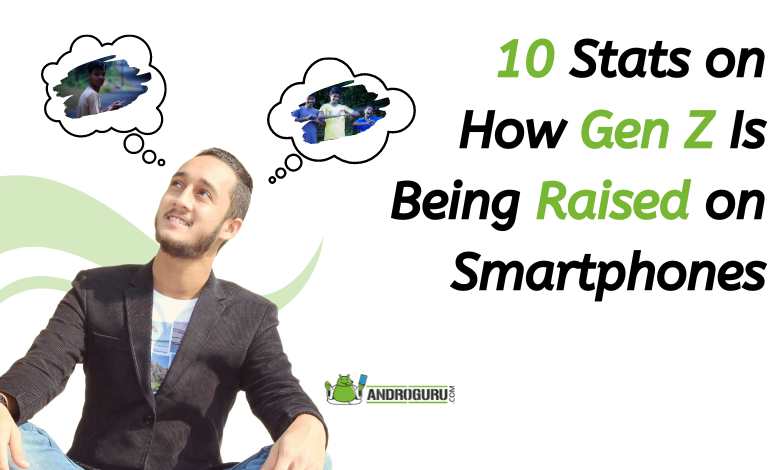
In the digital age, smartphones have become an integral part of our daily lives, and this is especially true for the younger generation known as Gen Z. Born between the mid-1990s and early 2010s, Gen Z has grown up in a world where smartphones are ubiquitous.
This article explores ten compelling statistics that shed light on how Gen Z is being raised on smartphones and the potential impact it may have on their development, behavior, and future.
- Smartphone Ownership: According to a survey conducted by Pew Research Center, 95% of American teens aged 13 to 17 have access to a smartphone, showcasing the near-universal ownership of these devices among Gen Z.
- Daily Screen Time: A study by Common Sense Media reveals that on average, Gen Z spends about 7 hours and 22 minutes per day consuming media on screens (2019), with smartphones being the primary device for this engagement.
- Social Media Usage: Gen Z is deeply connected to social media platforms, with 97% of them using at least one social media app regularly. Instagram, Snapchat, and TikTok are among their favorites, offering a constant stream of content and social interaction.
- Communication Preferences: The popularity of messaging apps among Gen Z is evident, with 88% of teens preferring to communicate with friends via text messages, social media platforms, or other messaging apps rather than face-to-face interactions.
- Online Content Consumption: YouTube has emerged as the go-to platform for Gen Z’s entertainment and information needs. A staggering 95% of Gen Z teens report using YouTube regularly, highlighting their preference for video-based content.
- Impact on Mental Health: Studies suggest a link between excessive smartphone use and mental health issues among Gen Z. Higher rates of anxiety, depression, and loneliness have been observed, possibly due to social comparison, cyberbullying, and constant exposure to curated online lives.
- Digital Skills Development: Growing up with smartphones has enabled Gen Z to develop digital skills at an early age. They are adept at navigating various apps, platforms, and online tools, which can potentially benefit their future careers in the digital age.
- Multitasking Behavior: Gen Z has become skilled multitaskers, often juggling multiple activities simultaneously on their smartphones. This ability to manage various stimuli may impact their attention spans and focus on deep, sustained tasks.
- Educational Impact: Smartphones offer access to vast educational resources, and 79% of Gen Z report using smartphones for educational purposes. Mobile apps, online tutorials, and e-learning platforms play a crucial role in their academic development.
- Digital Identity and Self-Expression: For Gen Z, smartphones are not just tools; they serve as extensions of their identities. They curate online personas, share their opinions on social issues, and use platforms to express themselves creatively, fostering a strong sense of digital identity.
As Gen Z grows up immersed in a smartphone-centric world, the impact on their lives is undeniable. These statistics highlight the profound influence smartphones have on Gen Z’s communication, socialization, education, and self-expression.
While there are concerns about the potential negative effects on mental health and attention spans, smartphones also offer significant benefits, such as digital skill development and access to educational resources.
As this generation continues to navigate the complexities of a digital landscape, it is essential for parents, educators, and society as a whole to understand and guide Gen Z in maximizing the potential of smartphones while mitigating potential risks, ensuring a balanced and healthy digital upbringing.








2 Comments